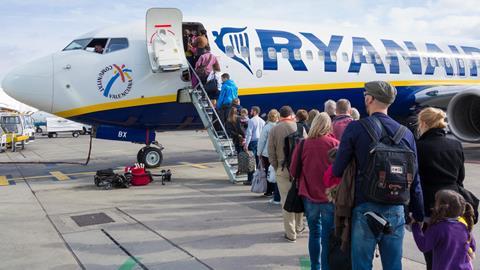Oh to be a fly on the wall when Michael O’Leary, chief executive of Ryanair, heard that the Supreme Court had favoured Bott & Co in its dispute over solicitor costs.
No doubt he would have expressed a couple of thoughts about the judgment itself – lost by the narrowest of margins – and the prospect of paying costs due to Bott for all flight delay claims since 2016.
But he might also be irked at the very fact that the company ended up in the Supreme Court at all. This was an airline that had introduced its own process in 2014 to enable passengers to make delay claims and to notify qualifying passengers of their right to compensation. The likes of Bott were supposed to go quietly away.
This was a no-brainer, right? Tell customers they can claim directly from Ryanair and don’t use those pesky lawyers, who will shave 25% (plus a £25 admin fee) from compensation. Why wouldn’t a passenger take the option of keeping 100%?
As the court judgment notes, going through Ryanair involved no greater effort or complexity than instructing Bott and was a cost-free way of obtaining compensation.
The problem for Ryanair was that too few people took up the offer. Indeed, the number of passengers using Bott’s scheme or similar ones launched by other firms actually increased. Bott and these other firms were upfront and honest about taking a slice of people’s payouts, but this didn’t seem to matter. As Lord Briggs noted, ‘it must be assumed that, if passengers knew of the Ryanair process for obtaining compensation, they still regarded the prospect of obtaining two thirds of it through Bott’s services as preferable to seeking compensation in full direct from Ryanair’.
This is not an isolated example. The RTA portal was launched last year promising to make it easier for people to make injury claims. The Ministry of Justice said that ‘substantial work’ was undertaken to ensure fairness in the system and allow unrepresented people to access it.
Yet no-one seems to want to do it themselves. Early figures show that 90% of claims come from those represented by a law firm, with few litigants choosing to go it alone. Many of these will be automatically allocated a lawyer through before-the-event insurance cover, but others will have made the conscious decision that they needed a lawyer, despite knowing this would cost a slice of their compensation.
Why is this so? The simplest answer will surely be convenience, and the prospect of letting someone else do the donkey work on a claim. Some lay people will be daunted by the process or seek the reassurance of having an advocate on their side. Others will be wary of trusting an insurer or an airline to compensate them fully, no matter how much they promise not to short-change people.
The problem is that while clients insist on paying for a lawyer no matter what the money involved (and flight compensation is generally only £300-400), government policy is weighted towards the idea that claimants keep every penny. Hence why whiplash damages were reduced through the tariff – the premise being that if the lawyers were locked out (and therefore not paid), the cuts in compensation would make no odds to the claimant.
It is a premise that appears to be fundamentally flawed. Consumers – no matter how easy the claims process – seem to gravitate towards a lawyer. When governments cut compensation in the hope it will take legal costs out the equation, they are missing their intended target.





































4 Readers' comments